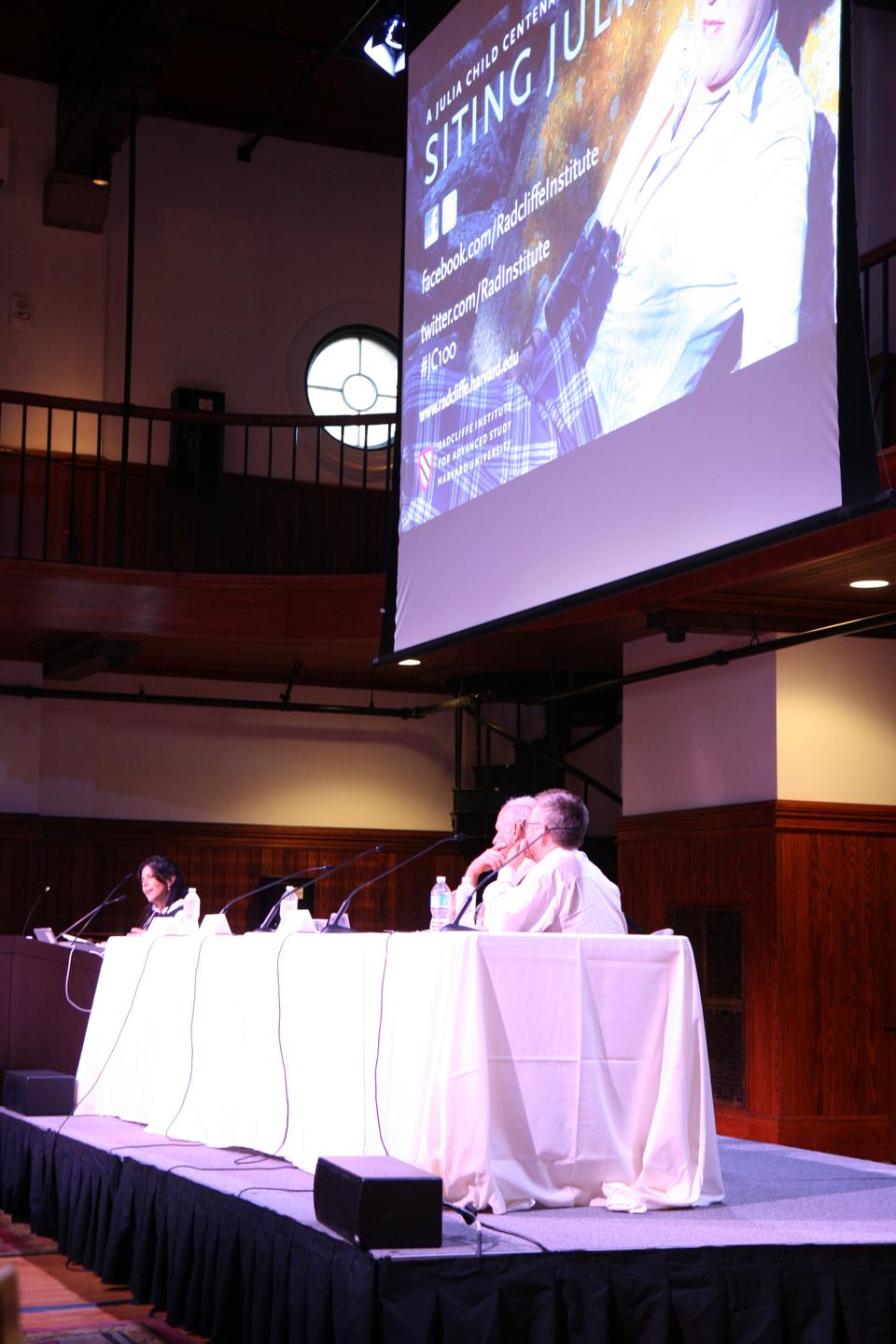
News
Cambridge Residents Slam Council Proposal to Delay Bike Lane Construction

News
‘Gender-Affirming Slay Fest’: Harvard College QSA Hosts Annual Queer Prom

News
‘Not Being Nerds’: Harvard Students Dance to Tinashe at Yardfest

News
Wrongful Death Trial Against CAMHS Employee Over 2015 Student Suicide To Begin Tuesday

News
Cornel West, Harvard Affiliates Call for University to Divest from ‘Israeli Apartheid’ at Rally
Schlesinger Library Commemorates Julia Child

Audience members gathered to commemorate what would have been the 100th birthday of American chef, author, and television personality Julia Child at an event hosted by The Schlesinger Library at the Radcliffe Institute for Advanced Study last Friday.
“Siting Julia” included remarks from authors, producers, and restaurateurs. Speakers focused on discussing three “sites” that Child inhabited, learned from, and influenced: post-World War II Paris, Cambridge, Mass., and national television. The addresses also touched upon how Child, in making French cuisine accessible to ordinary Americans, inadvertently influenced men and women alike.
In her welcoming remarks, Dean of the Radcliffe Institute for Advanced Study Lizabeth Cohen noted Child’s role in changing how the public approached the development of culinary skills.
“[She was famous for] promoting the idea that cooking can be taught [and that] cooking is a science,” she said.
Keynote speaker Laura Shapiro ’68 said that, despite Child’s unassuming style of instruction in print and on television, her fame impacted the construction of gender norms.
“She was never narcissistic,” she said. “She taught Americans how to cook and how to think [about women in the kitchen.]”
“No one ever called Julia a ‘little woman,’” Shapiro added.
Audience members, many of whom personally witnessed her rise to fame, credited Child with provoking a profound societal shift in thought with regards to conventional roles within the home.
Priscilla F. Kauff ’62 said that Child redefined cooking as a career and art form, rather than as a domestic duty.
“[She] legitimized and raised the level of cooking so, as a woman, you didn’t have to feel it was demeaning to cook,” she said.
Kauff added that Child’s television show, which she first encountered while learning how to cook for herself after graduation, also captured her husband’s interest at the time.
Kennie S. Lyman ’62 said that Child did not conform to traditional gender stereotypes of the time.
“[Child] was so radically different from the concept of the wife who had dinner ready,” she said.
Speakers introduced a song written by the late Rev. Peter J. Gomes entitled “O Julia Child.” The lyrics were projected onto a screen, accompanied by a piano. Audience members joined together in song to celebrate Child’s life and legacy.
The event, due to popularity, was broadcast online and at several locations on campus. Audience members also Tweeted alongside the webcast.
The Schlesinger Library houses Child’s extensive papers, in addition to the photographs, audio, and video of and about Amelia M. Earhart, Betty Friedan, June M. Jordan, Adrienne C. Rich, Harriet Beecher Stowe, Dorothy West, and other less well-known women.
Want to keep up with breaking news? Subscribe to our email newsletter.
